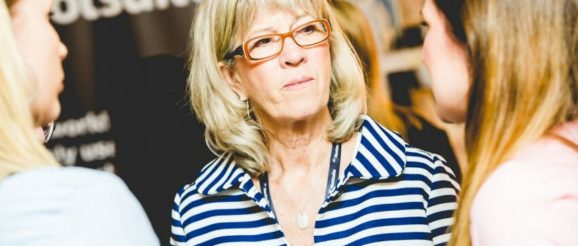Penny Wilson on sidelining ‘bro cultures’ to achieve real tech innovation

Hootsuite’s Penny Wilson on sidelining ‘bro cultures’ to achieve real tech innovation
Penny Wilson, CMO of Hootsuite, describes how she pushed aside stereotypical ‘bro-cultures’ in the tech industry to succeed and why it’s important other women follow suit to achieve real tech innovation
Penny, how easy was it to develop and progress in an industry that is traditionally very male-dominated?
I’ve now been in tech for more than 30 years, and I kicked off my first 10 years in IT in global finance, which at the time, was most definitely a male-dominated world! There were three women amongst over 750 men in our leadership community. It’s funny, looking back on my career, I never thought of myself as a pioneer, but when I think about it today, I was definitely not the “norm”. I am lucky in that I rarely faced overt discrimination, and was always recognised for my abilities.
My gender simply wasn’t an issue – or not one that I even considered. But others may not have been as lucky. In male-dominated industries, there are a host of issues uniquely facing women. Raising a family for example. I have two (now grown) boys, and I would never have been able to pull off a demanding career and motherhood without support from my husband and my network of incredible, like-minded colleagues and friends.
How did you discover, and then turn into a career, your interest in technology?
It became clear I had an affinity for numbers when I got 100% in calculus! My college years became a journey of discovering what I wanted to pursue: I wandered through medicine and genetics and finally landed on technology. In those days it was not a well-defined career but somehow my analytical mind, passion for challenge and want to make an impact (without wearing a lab coat) helped me find my way to a double major in computer science and business.
 Tech is facing a mental health crisis and discrimination is rife
Tech is facing a mental health crisis and discrimination is rife
What does the industry need to do to encourage women into the technology sector?
I think we have to start early, and by that, I mean in elementary school. Two-thirds of elementary aged children indicate an interest in science, yet as they get older, the percentage of interested girls falls dramatically. By high school, it drops even more. And once you look to university, the number of women seeking degrees in STEM falls even further, to between 14% and 18%. It’s about creating an equal and supportive learning environment, right from the very beginning.
How does the lack of diversity impact your work and what are you doing at Hootsuite to tackle this?
I truly believe diversity is the key to innovation. I think we have made great strides in establishing an equitable workplace, but of course, there is always more work to be done. We have made a concerted effort to move away from the stereotypical “bro-culture” that persisted in tech for years and create a more equitable and diverse workplace. For example, we now have an active parent group at Hootsuite, which would have been unheard of in tech a decade ago. But women remain underrepresented, especially in management positions, which is why we have launched the Women’s Leadership group at Hootsuite.
 How diversity can help fight cyber-attacks
How diversity can help fight cyber-attacks
This group aims to determine how best to foster an environment in which women can thrive. The group meets regularly to discuss issues and opportunities in the organisation that impact women. It’s based on similar programmes at Google and Facebook that have seen great success. Hootsuite also offers courses in ‘unconscious bias’ a fascinating topic that challenges your perceptions about the world and the workplace beyond gender.
What initiatives have you seen or led that has helped tackle inequality in the workplace?
Under the banner of the Women Leadership Group at Hootsuite, we have held ‘listening lunch’ sessions across several of our offices, in which we asked attendees (both men and women) “What do women at Hootsuite need to thrive?” Thirty-seven per cent said a cultural change, meaning a more inclusive culture, reducing unconscious bias, etc … Almost a third said more women in leadership positions, and 14% responded more support for parents.
It is vital for an organisation to listen to employees and have them take the lead on these important cultural shifts. The feedback gathered from the lunches has helped us further define our mandate as a group and where we should focus our efforts for 2019.
Penny Wilson is a marketing and operating veteran with over 30 years of international experience in the technology industry, leading brands such as Macromedia, Juniper Networks and now Hootsuite.
Interview by Cheryl Cole, editor of DiversityQ
